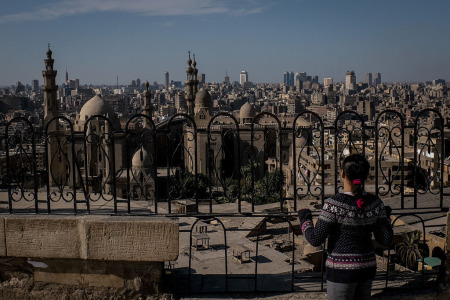Egypt gives legal status to 70 more churches, but threats to Christian houses of worship remain

As a government committee headed by Egyptian Prime Minister Mostafa Madbouly gave legal status to 70 churches this week, the number of Christian houses of worship that have been legalized in the country came to 1,638. However, the threat to churches in this Muslim-majority country remains.
Formed in January 2017, the Committee for the Legalization of Unlicensed Churches comprises the ministers of justice, parliamentary affairs, and local development and housing, as well as representatives of local authorities and Christian communities, according to Egypt Independent.
Since 2017, the committee has legalized 1,638 churches.
However, as recently as Wednesday, local authorities in the Koum Al-Farag area of Al-Behera governorate demolished a church building after sectarian protests, the U.K.-based Christian Solidarity Worldwide reported.
The church had been holding worship services in its one-story building for 15 years until local Muslims constructed a mosque next to it a few years ago. As per the country’s common law, churches cannot be formally recognized or allowed to display Christian symbols if a mosque is built next to them.
Since the church grew, it went on to add two more floors to the building, which led to sectarian tension in the area. As a result, local authorities demolished both the church building and the mosque next to it, CSW said, adding that 14 Christians, including the priest and four female members, were arrested for trying to stop the authorities from demolishing the building.
“CSW welcomes the legalization of more churches in Egypt, and we encourage the administration to continue on the path of reforming legislation and addressing societal attitudes and practices that restrict the right to freedom of religion or belief,” CSW’s Chief Executive Mervyn Thomas said. “(But) we remain concerned by the destruction of both the church and mosque in Koum Al-Farag, which is not an effective way of addressing sectarian tensions. The government must work with local authorities to formulate civic interventions that address and transform the societal attitudes underpinning sectarian tensions.”
Last year, the U.S.-based persecution watchdog group International Christian Concern reported the legalization of 127 congregations.
However, critics of the committee, including ICC, have argued that it's moving too slowly in its granting of approval for the church buildings still on the list awaiting legalization.
“The 2016 law (based on which the committee was created) was supposed to make it easier for new churches to go through the legalization process,” said ICC at the time. “However, President [Abdel Fattah] Sisi’s government has a worse record than his predecessors when it comes to approving new church buildings.”
According to the Christian persecution watchdog group Open Doors USA, Egypt holds the rank of the 16th worst persecutor of Christians in the world.
“Many Egyptian Christians encounter substantial roadblocks to living out their faith,” it notes. “There are violent attacks that make news headlines around the world, but there are also quieter, more subtle forms of duress that burden Egyptian believers. Particularly in rural areas in northern Egypt, Christians have been chased from villages, and subject to mob violence and intense familial and community pressure. This is even more pronounced for Christians who are converts from Islam.”




















